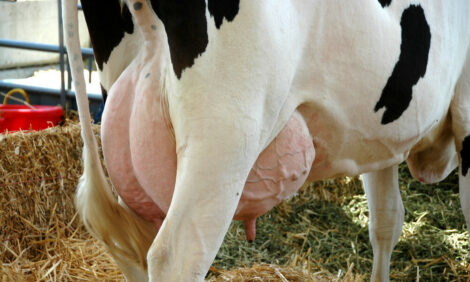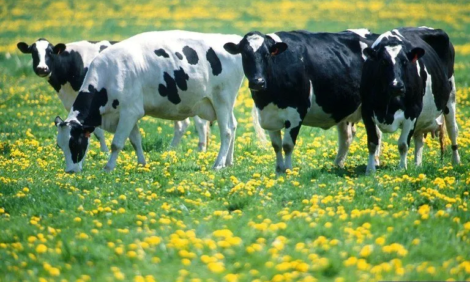



Support for Russian Dairy to Boost Production and Stability
ANALYSIS - Milk production in Russia was stable last year reaching 30.78 million tonnes, while the cows’ milk yield rose by 6.9 per cent.According to the latest reports from the Russian agriculture ministry, the positive trend in production shows that there is scope for growth in production through better use of genetics in the dairy herd, a better and more balanced feed and the use of innovative technologies.
However, the Russian ministry said that because of the current economic conditions it is essential to maintain support measures for the sector.
The agriculture ministry said that agricultural organisations and commercial rural farms had shown a growth in production of 2.4 per cent and 6.1 per cent respectively, whilst smallholdings showed a fall in production of 3.3 per cent.
The report says that production increased in 46 regions with the largest growth in the Republic of Ingushetia, where it rose by 11.5 per cent.
Kaluga saw a rise in production of 11.2 per cent, Kaliningrad Oblast by 8.8 per cent, Kirov by 6.8 per cent, Tula by six per cent, Vologda by 5.6 per cent, Primorsky Territory by 4.3 per cent and the Leningrad region by 3.7 per cent.
The federal budget for 2015 and for 2016 and 2017 had set aside 11.26 billion roubles to support the sector although actual funding last year was just under 10.5 billion roubles.
The funding programme supported further modernisation of the dairy industry, building new and rebuilding and modernising farms.
In total 219 new dairy operations came on line last year producing an extra 234,000 tonnes of milk.
The report says that the most important improvement was in reducing seasonality of production, which largely determines the price of milk and profitability of production.
Reducing seasonality produced more financial stability for producers.
The report said that this will help to ensure production growth and increase the efficient use of state support.
The state support programme backs the production of every kilogram of milk produced and shipped to processing and also provides 20 per cent of the costs of building or modernising livestock buildings and farms.
The report concluded that because of the current economic conditions the support system had to continue, helping to bring investment into the sector, speeding up the reduction in imports by using domestically produced milk.
The support system also works to stimulate growth in production of basic agricultural products and improve the financial stability of Russian dairy farmers.



